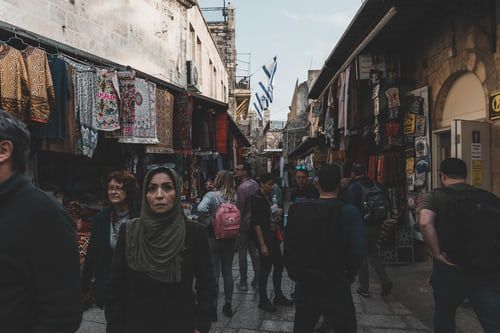The World Health Organisation (WHO) has warned of possible ‘catastrophic consequences’ of the Muslim Eid al-Adha holiday as the Middle East and North Africa are witnessing a surge of COVID-19 cases aggravated by the Delta variant. The festivities begin on Monday, July 19 and the holiday will go on till Friday, July 23.
After a decline in COVID-19 cases and deaths across WHO’s Eastern Mediterranean Region for 8 consecutive weeks, several countries are seeing a significant increase in new cases and deaths, the WHO report said. A surge in the caseload has been reported in Libya, Iran, Iraq and Tunisia as the region edges toward a critical point, WHO added. The region has reported 11 million cases in total since the start of the pandemic.
Also read: Death rate high among patients infected with both COVID and HIV: WHO
The UN body has also published certain SOPs to contain a possible outbreak during the Muslim Eid al-Adha holiday, which is traditionally celebrated with large or medium-sized social gatherings.
“Countries are reintroducing or strengthening social and travel restrictions, but at this stage, increasing complacency by communities means that the virus is winning in the Region. As variants continue to spread, we need everyone to get vaccinated as soon as they are offered the vaccine, and to continue wearing masks, and practising physical distancing. Although significant progress has been made, there remains a shocking imbalance in the global distribution of vaccines, and this leaves millions of people exposed to deadly variants of concern. It is not too late to turn the course of this pandemic, but it requires much more exerted global, regional and national efforts,” said Dr Al-Mandhari, WHO Regional Director for the Eastern Mediterranean.
Also read: Explained: What happens if athletes test COVID positive at Tokyo Olympics
Tunisia is the Arab world’s worst-hit country by the Delta variant. Between 8000 and 9500 cases are currently being reported every day, with the wide circulation of the Delta variant, WHO drew an image of the concerning situation in the country. Lockdowns have been imposed in Tunisia. Tunis has appealed to Arab Gulf countries for critical aid, as its health care sector faces “catastrophe,” according to the Tunisian government.
Also Read: Medical bodies, world leaders divided on COVID vaccine booster shots
Iran, one of the worst-hit countries in the region, broke its daily record by reporting more than 23,000 new infections on Thursday.
The country’s daily average tally almost doubled over the last four weeks, and the number of daily deaths has increased over the past two weeks, WHO said.
Less than 1% of the population in Iraq has received a COVID-19 vaccine dose. Earlier this week, a fire in a hospital treating coronavirus patients, killed more than 92 people.







